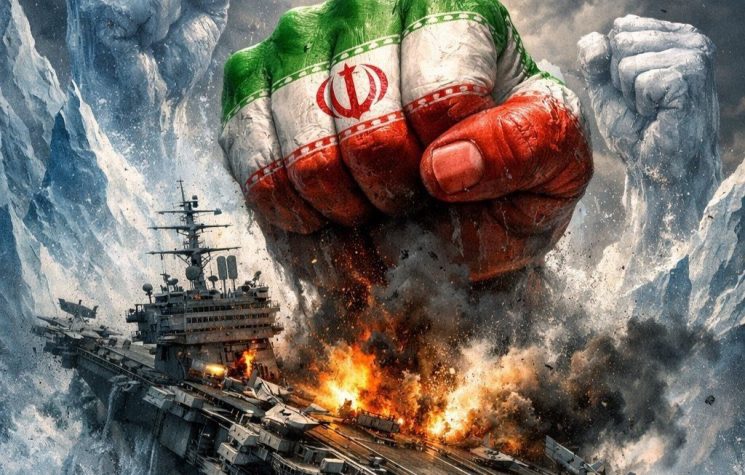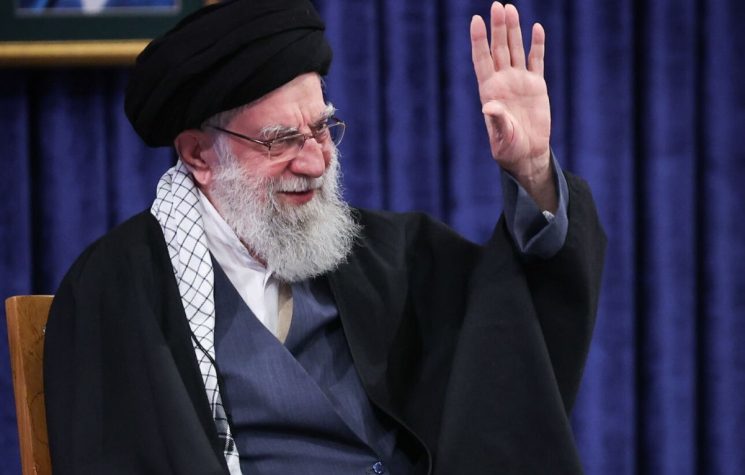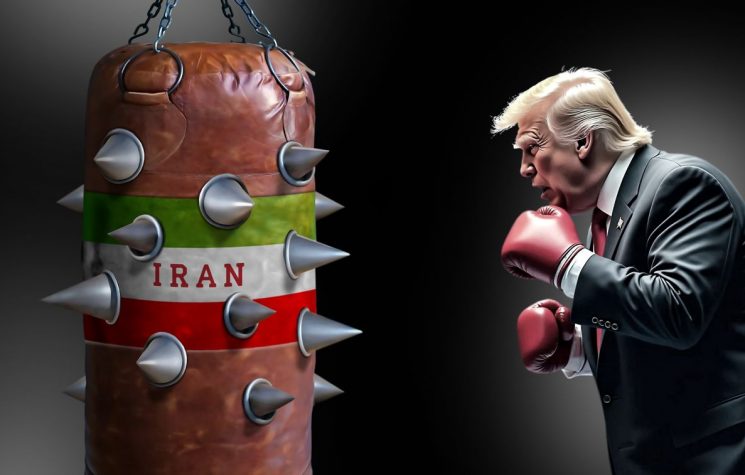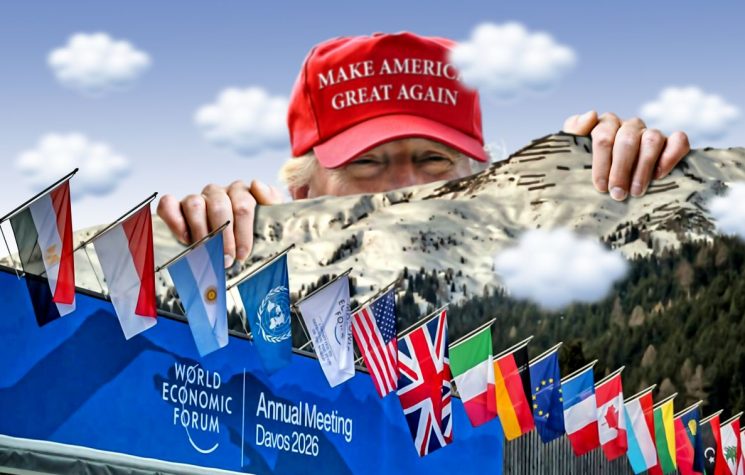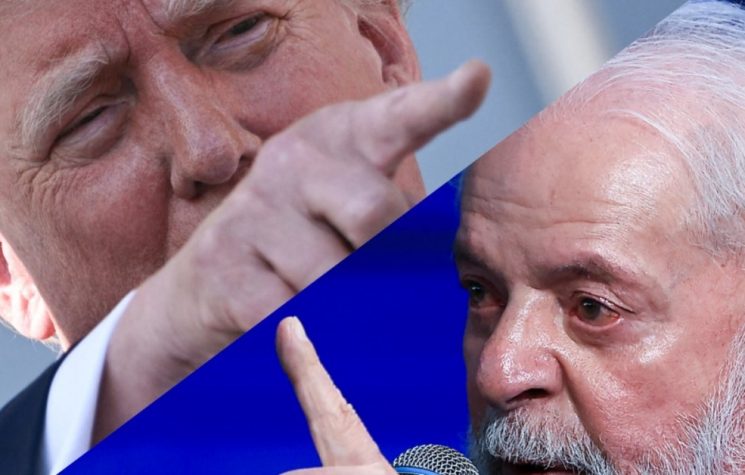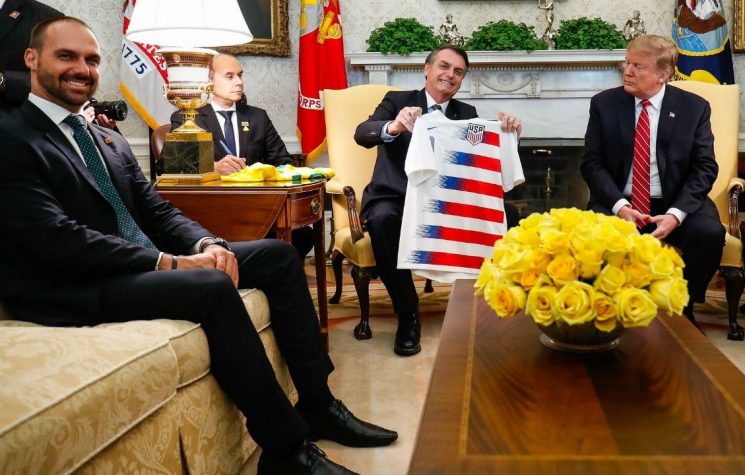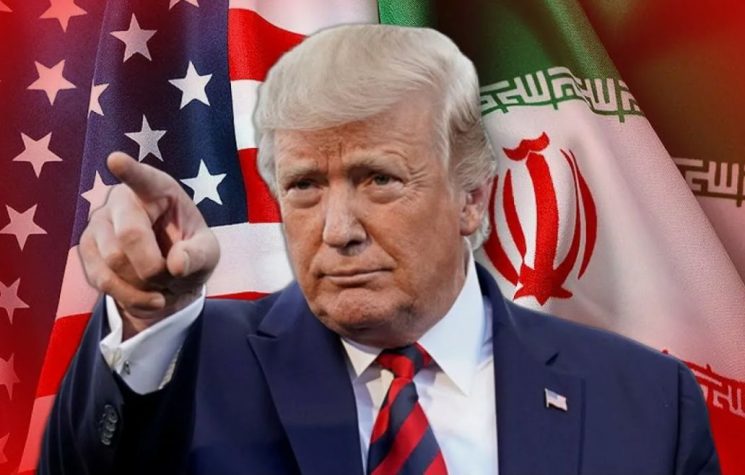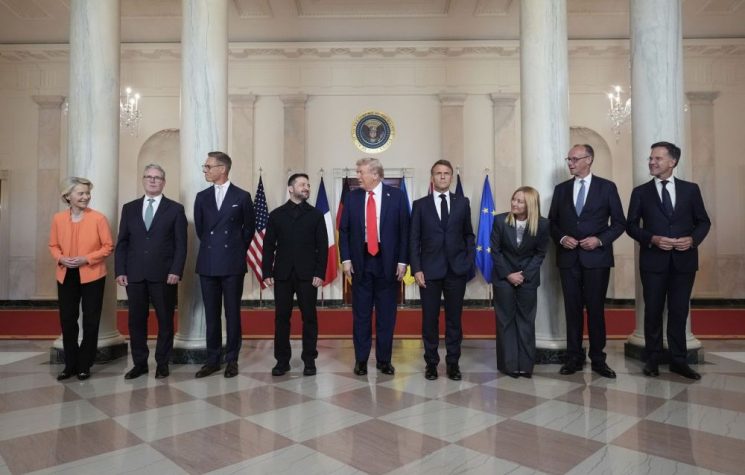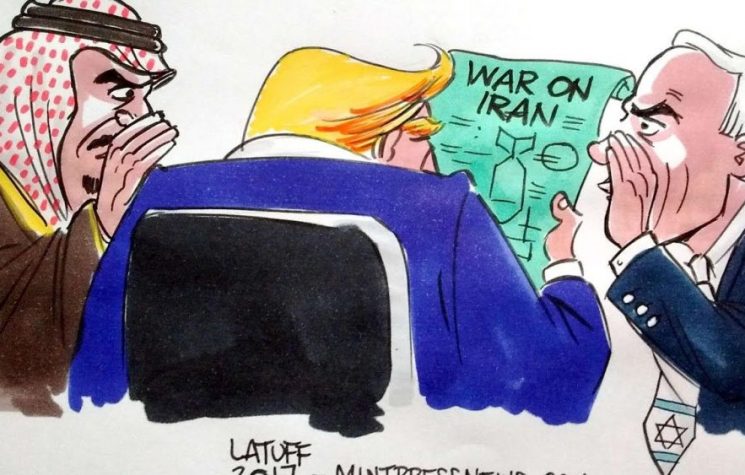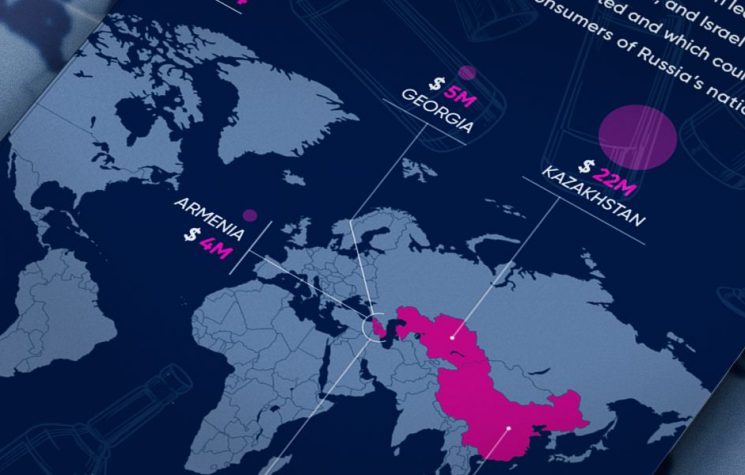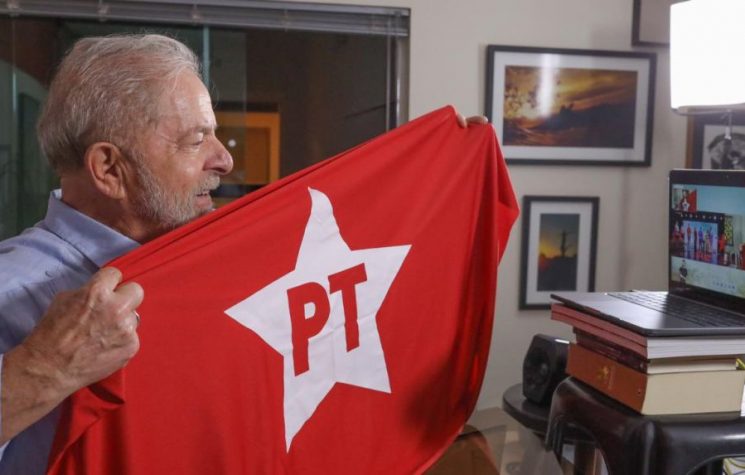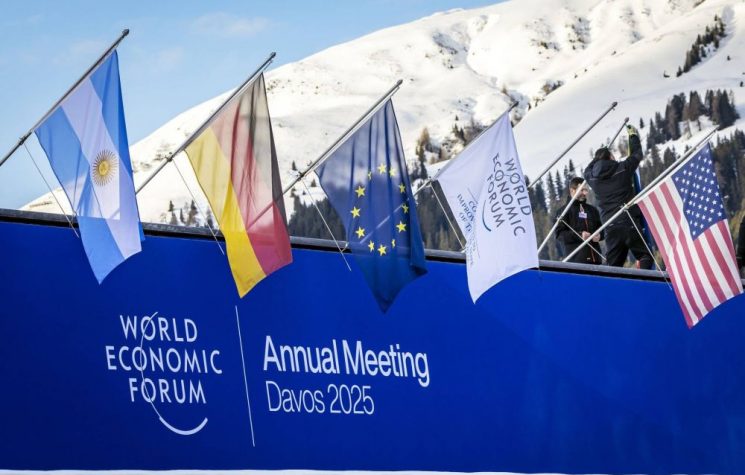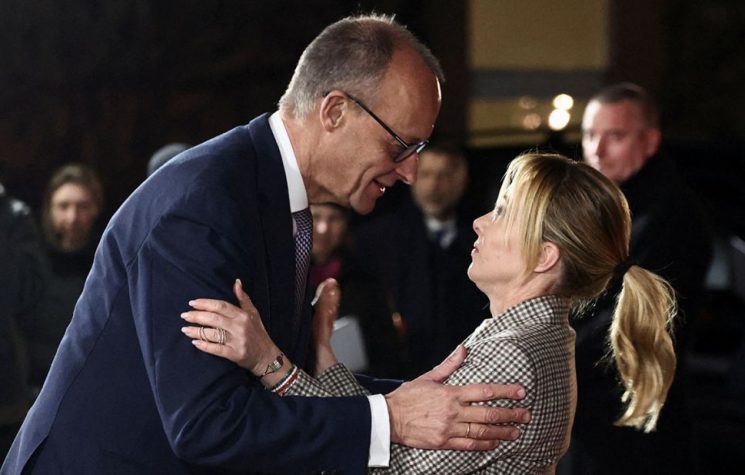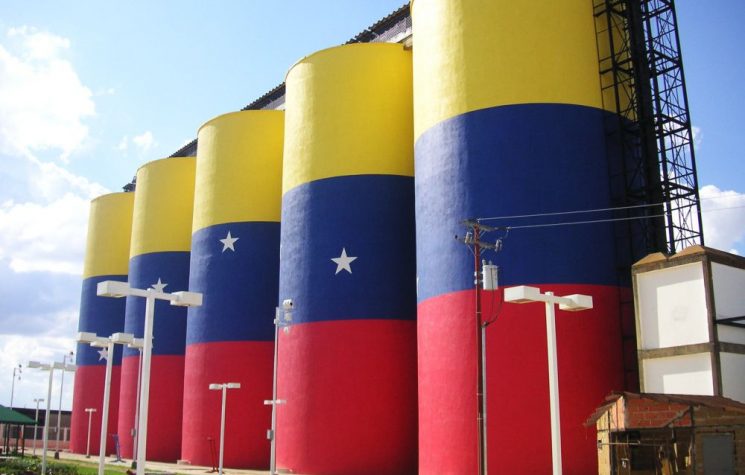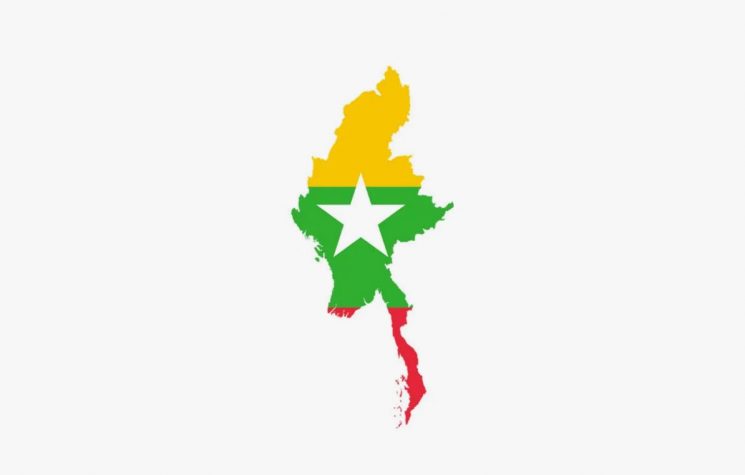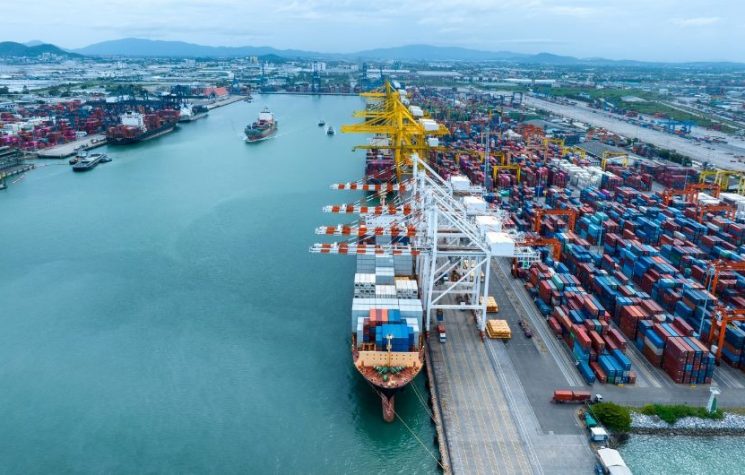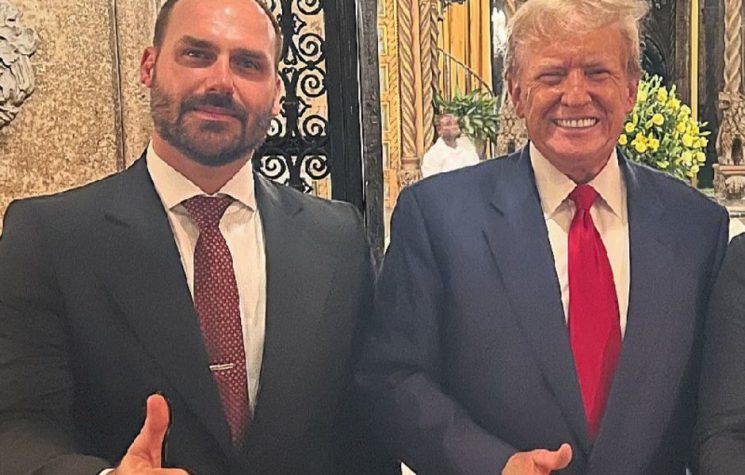The most reasonable explanation is to attribute the relief to the United States’ own internal pressure
Join us on Telegram![]() , Twitter
, Twitter![]() , and VK
, and VK![]() .
.
Contact us: info@strategic-culture.su
In the Rorschach test, the examiner places an image of symmetrical inkblots with no objective meaning, asks the examinee to describe what they see, and, from there, draws conclusions about their subjectivity. The episode of sanctions against Brazil has generally been a major Rorschach test in Brazilian society. The analyses inform more about the subjectivity of the players (that is, their political preferences) than about the political reality of the tariffs.
First, on July 9th, came the letter announcing the sanctions against Brazil, which would be effective at August 1st. As reasons, Trump cited the judicial persecution of Bolsonaro, but also the arbitrary actions of our Supreme Court, which affected U.S. social media companies.
At this stage, the interpretation of the event polarized between pro-Bolsonaro (the minority of political players on the right) and anti-Bolsonaro (the majority of political actors, including on the right). According to Eduardo Bolsonaro’s version, repeated by Bolsonarists, the tariffs were due to a moral imperative from the U.S. against the lack of freedom in Brazil, something his opponents fail to see because they only care about money and have no values. There would be no point in the government sending anyone other than Eduardo Bolsonaro to talk to Trump. According to the other political actors’ version, the sanctions would come anyway because Trump is imposing tariffs on everyone, so the allusion to Bolsonaro is a kind of bravado that cannot or should not be taken seriously. The plan, however, would backfire, as the people would turn against Bolsonarism (which wants to harm the country’s economy just for revenge) and Lula would be tasked with defending the national interest.
If the pro-Bolsonaro group was completely wrong in believing Trump to be a good guy defending free speech and democracy (pro-Palestine university students and Syrians can attest to that), they were right, however, regarding the U.S.’s ill will toward the Brazilian government: the White House refused to receive the Brazilian ambassador. On the anti-Bolsonaro side, the obvious flaw is to ignore the fact that the unpredictable Brazilian Supreme Court’s shenanigans included the freezing of Starlink’s bank accounts after Elon Musk’s inclusion in the Kafkaesque Fake News Inquiry. Furthermore, our Supreme Court made a decision (contrary to Brazilian law, it must be said) that holds platforms liable for published content. In other words, even though there’s a global tariff hike and Brazil has no reason to escape it, it’s impossible to ignore the fact that the U.S. president (whoever he may be) has plenty of reasons to be angry with our Supreme Court.
But if Trump is essentially acting normally toward Brazil, one would expect Brazil to react like other countries in the world, which have come to negotiate, right? Now enters the scene First Lady Janja, whose photo should illustrate the dictionary entry for “untimely.” Days after Trump’s letter, she posted a cheerful video on Instagram in which Lula picks jabuticabas from the tree, offers them to Trump, and attributes his bad mood to the lack of jabuticabas, a fruit unique to Brazil. Janja herself, in fact, had already contributed to the crisis between Elon Musk and the Brazilian judiciary: at the G20, she said loudly, and in English, “F*** you, Elon Musk!”
Besides being a hindrance, what did Lula do? Nothing that was published. After the ambassador’s rejection, pro-government senators traveled in a delegation to the U.S., held a private meeting at the hotel, and eventually managed to meet with U.S. lawmakers. The detail is that the lawmakers were Democrats (with the exception of Thom Tillis).
The job, in the end, seems to have fallen to the discreet minister and Vice President Geraldo Alckmin – who throughout the New Republic was an adversary of Lula and was called a Nazi by the left, until Bolsonarism emerged. On July 28, Folha de S. Paulo reported that Alckmin was the one negotiating with Commerce Secretary Howard Lutnik, and that his priority was to exclude food and Embraer from the sanctions.
On the 30th, new sanction announcements arrived. First, the news, much celebrated by Bolsonarists, that Alexandre de Moraes had finally been sanctioned under the Magnistsky Act. After all, Eduardo Bolsonaro had promised such a sanction against the minister and delivered a sanction against rural producers, among whom are many supporters of his father. Soon after, economic sanctions against the country were announced. The 50% tariff was maintained, the date changed from August 1st to August 6th, and, most importantly, the list of Brazilian products that escaped the tariffs was so long that it was easier to pinpoint the biggest losers: coffee, red meat, fish, and timber.
The unexpected relief was once again seen as a Rorschach test. Lula supporters, in chorus with the U.S. Democratic press, attributed it to Lula’s lordliness, because he did not negotiate with Trump and obtained better results than the servile European Union. The other anti-Bolsonaro groups attributed the relief to negotiations by the government’s allies, especially Geraldo Alckmin. Eduardo Bolsonaro, meanwhile, published a statement on Twitter claiming to have worked to ensure that the sanctions focused as much as possible on Alexandre de Moraes and spared the Brazilian productive sector.
The fanciful interpretation of the Lula supporters needs no comment. Eduardo Bolsonaro’s might have been credible if he himself hadn’t publicly thanked Trump for the sanctions on Twitter, and if he hadn’t gone on Brazil’s most popular podcast with his political partner, Paulo Figueiredo, to declare that they regretted nothing and were willing to destroy the country’s economy (“set fire to the forest,” as they put it) to restore freedom of expression in Brazil, which must be as important to Uber drivers as their ability to buy food. The program was viewed by 1.5 million Brazilians.
The only explanation of the three that has any plausibility is the one that gives the credit to Geraldo Alckmin, especially because of his concern about Embraer, as reported by Folha de S. Paulo. However, as Folha itself reported, this wasn’t a very difficult task, since Embraer imports aircraft parts from the U.S. Punishing Embraer would have meant punishing the scarce U.S. industrial jobs. Furthermore, the other things Alckmin wanted to save (food) weren’t spared, and many non-food items were spared.
The most reasonable explanation is to attribute the relief to the United States’ own internal pressure. On the one hand, orange juice producers were a group that complained a lot, and Brazilian oranges were spared. On the other, one only has to watch popular programs among MAGA supporters to find advertising for meat produced within the U.S., which is superior to imported meat. Brazilian meat wasn’t spared. Despite its incompetent elites, Brazil is an economic powerhouse that cannot be easily sanctioned. The fact that Trump failed to sanction us highlights the weaknesses of the world’s largest economy. For that very reason, it must protect American Big Techs from Brazil’s crazy Supreme Court, so the Magnitsky Act is not a Bolsonarist fantasy.













